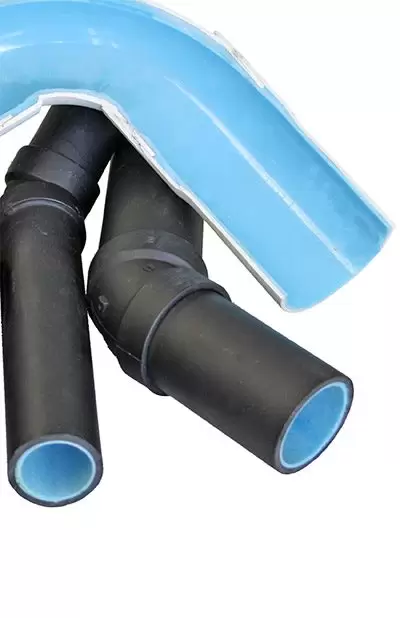NSF International and the American Society of Testing Materials (ASTM) are probably organizations you’ve heard of – but know little about. In the pipe lining industry, you’ll see materials labeled or companies claiming to be certified NSF SE 13004 and ASTM standard F-1743 or ASTM 1216. These are just a few of the certifications a CIPP epoxy lining can have. Beyond the letters and numbers, what does it mean to the installer? More importantly, what do these letters and numbers actually mean to the owner of the damaged piping system? These certifications from the NSF and ASTM scientifically prove CIPP products are a long-lasting solution for deteriorating pipelines but are also safe to use in drain or potable pipelines. Who are these companies? What role do they play in pipe lining trenchless technology industry?
NSF International is an independent federal agency created by Congress in the year 1950 to utilize science to advance the national health and economy of the United States. NSF provides funding, researching, and testing of products that lead to not only economic growth for companies, but also the general well being of society. The American Society for Testing and Materials was formed well before NSF in 1898 by a chemist in Pennsylvania. They are more commonly known as ASTM International, which now operates worldwide. ASTM is recognized for its work in creating testing methods, specifications, classifications, and guides that support industries like the CIPP lining industry. With a long history in standard-writing, ASTM, is the global leader in developing, testing, and declaring certifications for manufacturers. For CIPP manufacturers these certifications are not a one-time deal. Further testing each year must be conducted so that the CIPP product remains within the standards of the certification. This is good news for installers and property owners or managers because the integrity of the epoxy lining is absolutely critical in the success of a lining job. If the epoxy is not up to those certification requirements it is possible that the lining could fail resulting in further piping problems.
Safety and quality are the cornerstones for a healthy pipeline system. These organizations that conduct scientific tests and information prove the quality and integrity of a CIPP product. They also determine what is safe for human consumption or exposure to – in addition to what is healthy for the environment. These certifications may be just letters and numbers, however, they are the seal of approval for the safe use of that particular manufactures CIPP product. Make sure that the CIPP product you’re installing holds certifications that are safe to put into your pipeline systems. Check out NSF’s website to see which products your CIPP manufacturer is certified in. The next time you see a company stating they are, NSF SE 13004 for instance, you’ll know that their product underwent a rigorous amount of testing to make sure it is safe and has the long-term strength to fix your failing pipeline system.

